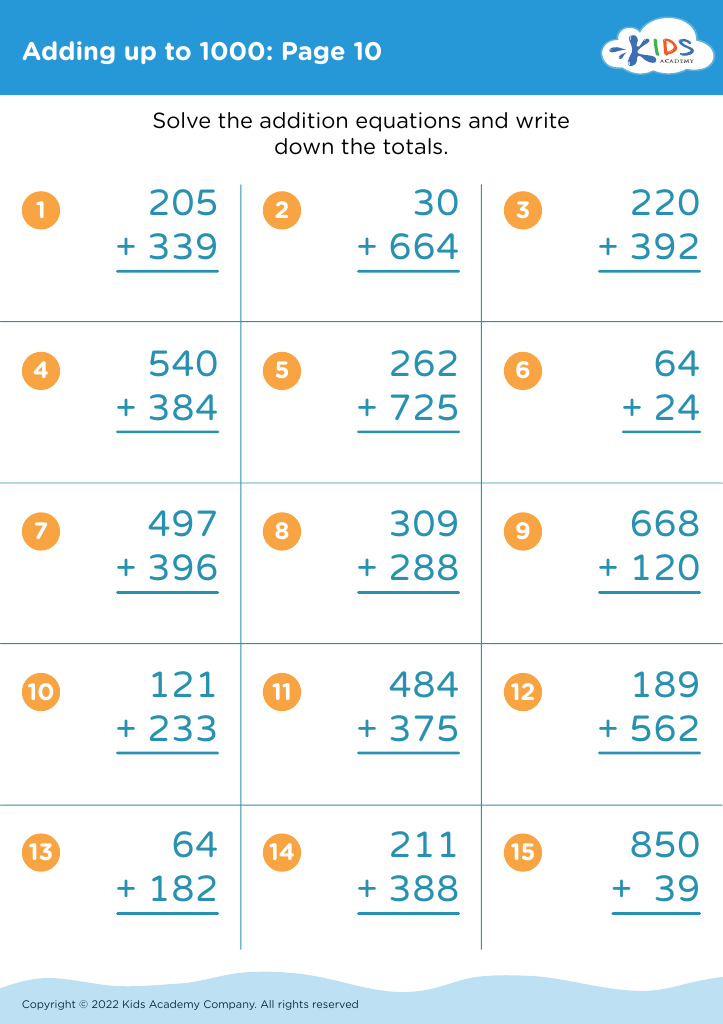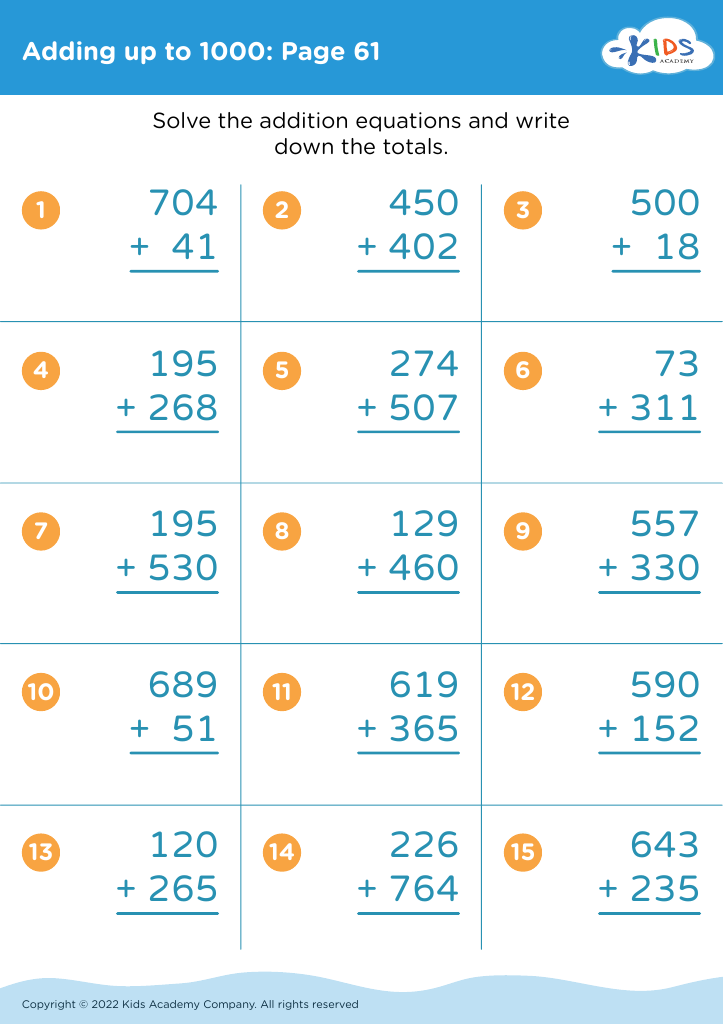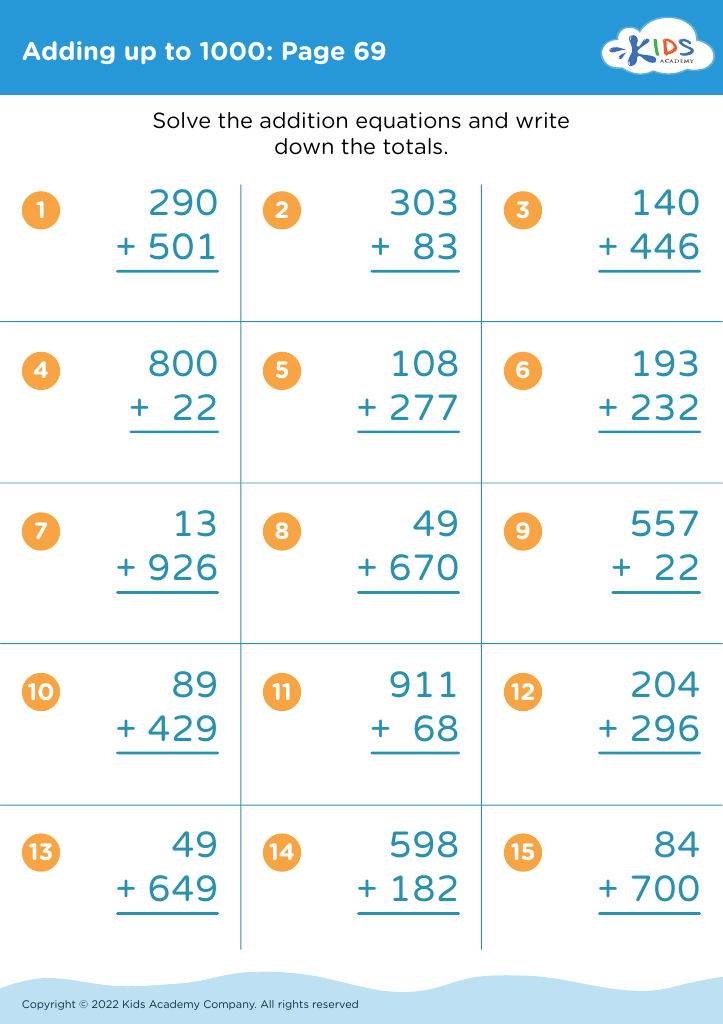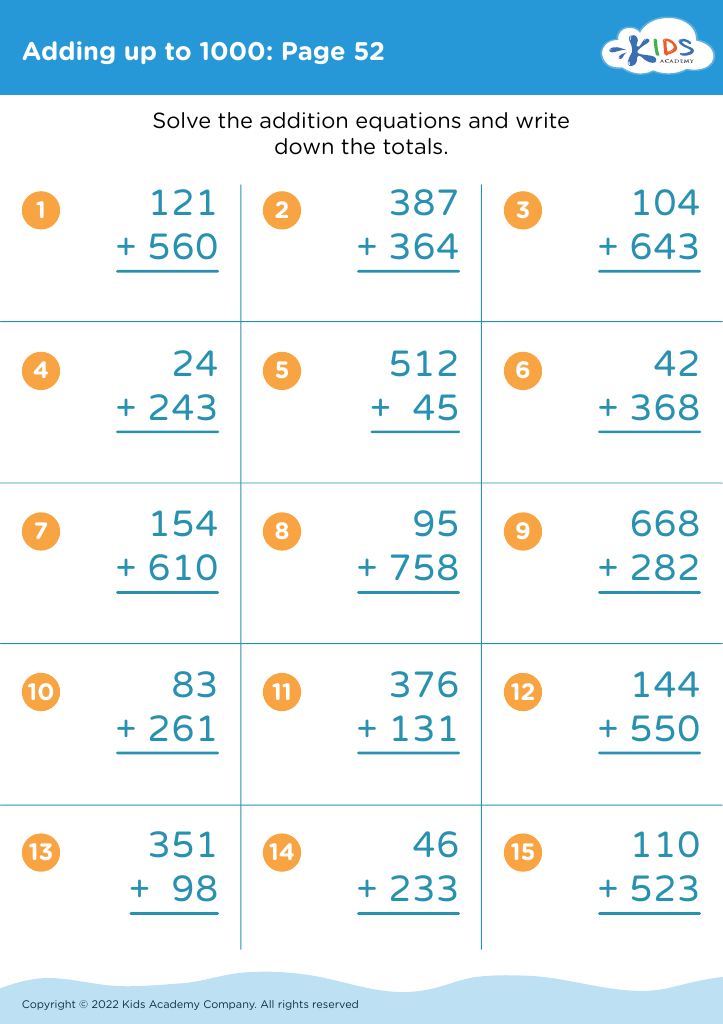Fraction simplification Adding up to 1000 Misc Worksheets for Ages 5-7
5 filtered results
-
From - To
Our "Fraction Simplification Adding up to 1000 Misc Worksheets for Ages 5-7" offers young learners engaging and educational experiences. Ideal for early grade students, these worksheets simplify core math concepts such as fractions and large number addition up to 1000. Carefully crafted for kids aged 5-7, each worksheet is designed to enhance problem-solving skills, improve mathematical understanding, and build a solid math foundation. By blending fun with learning, these resources ensure kids develop confidence and competence in math at an early age, setting the stage for future academic success. Download now to make learning math enjoyable!
Teaching fraction simplification and other math topics to young children might seem ambitious, but these foundational skills set the stage for more advanced learning. First, fractions introduce children to the concept of parts and wholes, which is fundamental in understanding everything from measurements in cooking to breaking down complex tasks into manageable steps. Simplifying fractions, specifically, helps cultivate logical thinking and problem-solving skills.
Adding up to 1,000 expands their arithmetic capabilities and boosts their confidence. By working with larger numbers, children prevent math anxiety and transitions smoother into more complex math operations. Basic addition also reinforces memorization, sequencing, and attention to detail, all crucial skills for their academic growth.
Moreover, starting these skills early taps into children's natural capacity for learning new concepts, which is at its peak between the ages of 5 and 7. Engaging in these learning activities makes math fun and interactive, sparking a lifelong interest in the subject. Not to mention, mathematical literacy is no longer limited to academic success. It's a vital life skill needed for everyday decisions, budgeting, and logical reasoning.
Thus, an early introduction to fraction simplification and arithmetic enriches their cognitive development, primes them for school success, and equips them with the life skills they will continue to use.
















